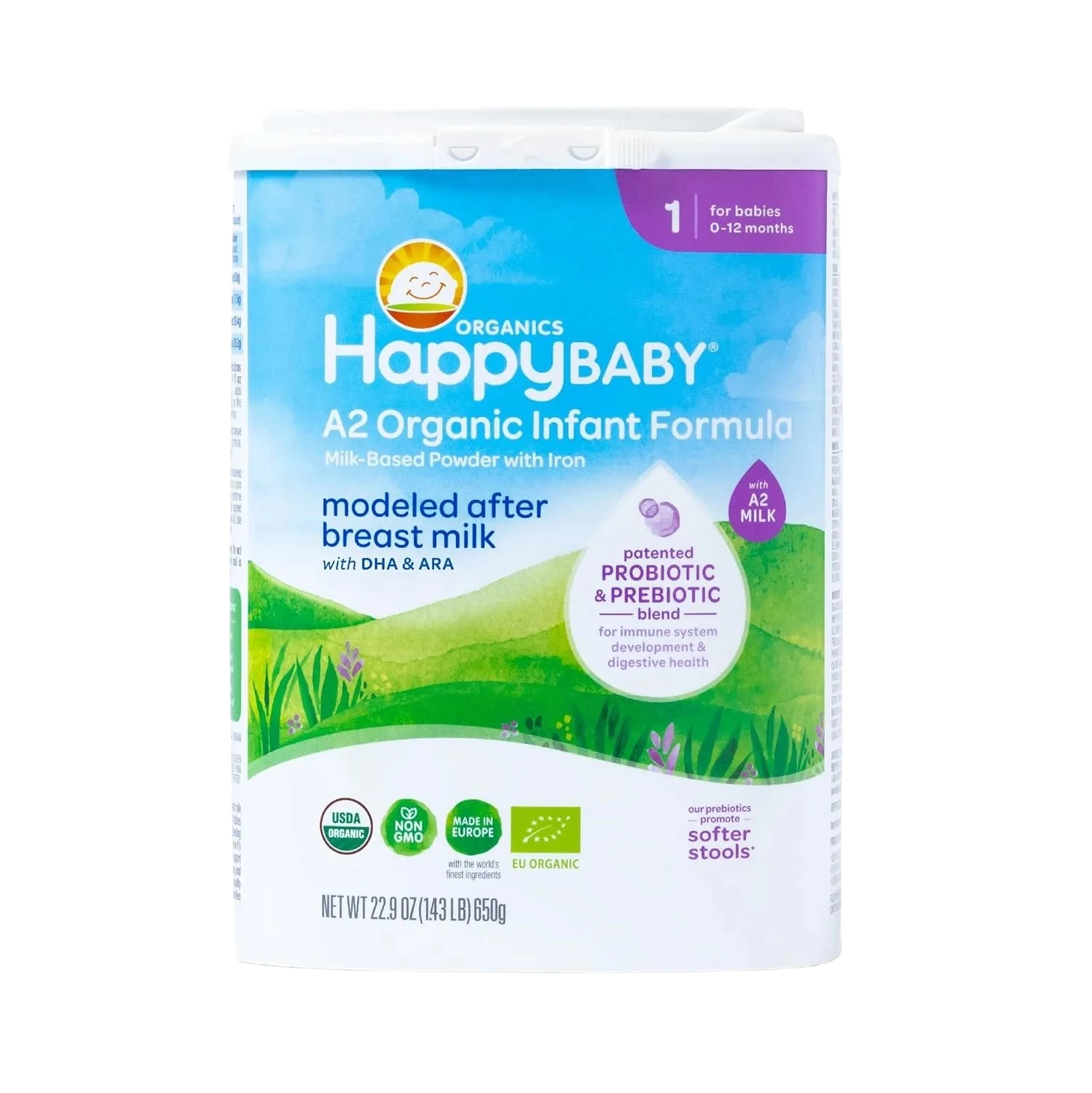HappyBABY A2 Organic Infant Formula
formula • For 0-6 month old infants • Consumable 🍝
Product Images
Product Photo

Tap to enlarge
Ingredient List

Tap to enlarge
Is this safe for 0-6 month old newborns to eat HappyBABY A2 Organic Infant Formula?
Check for Different Age (6 available)
Ingredients Analysis (45 found)
Common Questions About HappyBABY A2 Organic Infant Formula
Is this newborn-safe? HappyBABY A2 Organic Infant Formula
HappyBABY A2 Organic Infant Formula is not recommended for 0-6 month old babies due to potentially harmful ingredients.
What ingredients should I watch out for?
We analyzed 45 ingredients in HappyBABY A2 Organic Infant Formula. 2 concerning, 1 caution. Check the detailed analysis above for specific concerns.
When can newborns start eating formula?
The appropriate age depends on the specific ingredients. This analysis is for 0-6 month old babies. Use the age selector above to check other ages.
⚠️ Important Disclaimers
Product Recognition: Product names are identified by AI and may be incorrect. Always verify product identity yourself.
Safety Analysis: Evaluations are for research only - consult pediatricians for medical decisions.
No Guarantees: Results may be incomplete or inaccurate. Do not rely solely on this analysis.
